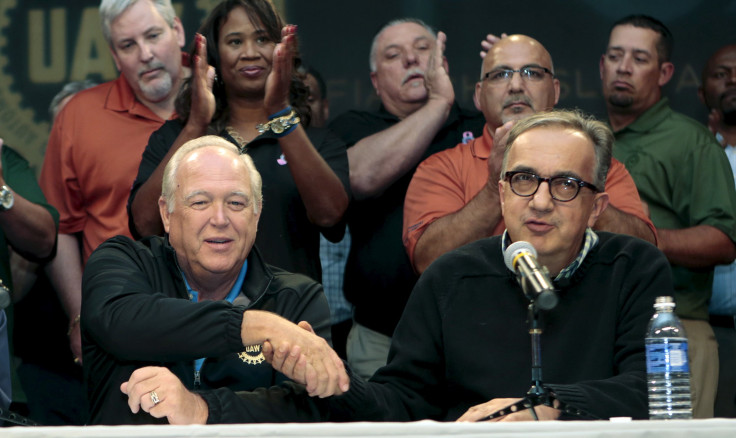Fiat Chrysler, UAW Reach Tentative Labor Agreement

The United Auto Workers Union (UAW) and Fiat Chrysler Automobiles reached a tentative agreement Tuesday over an ongoing labor dispute over pay and healthcare issues, but neither side provided specifics about the deal.
The accord, which is set to cover work conditions for about 40,000 workers of the automaker across the country, comes after 48 hours of bargaining. The deal will also serve as a template for Fiat Chrysler’s Detroit counterparts, General Motors Co. and Ford Motor Co., both of which currently operate on contract extensions. However, UAW President Dennis Williams said that the other two companies would be treated differently in bargaining because they are more prosperous.
"It's about whether or not the company has a greater ability to pay," Williams said at a joint press conference Tuesday, according to the Associated Press. "I don't want people to think for one minute that I'm not looking at the other companies and the amount of money that they have made."
He added that the agreement meets the needs of workers while allowing Fiat Chrysler to remain competitive with other automakers. He said that he had three goals for the agreement: opening the way for entry-level workers to make more money, rewarding members for sacrifices they made during Fiat Chrysler’s financial struggles, and measures to deal with rising healthcare cost.
"We believe that we have met those goals, but ultimately our membership will make the final decision," Williams said.
The union sought to address a two-tier wage system in which entry-level workers make less money than more experienced co-workers for the same job. The deal reportedly aims to eliminate this discrepancy over time. Fiat Chrysler CEO Sergio Marchionne said the tentative agreement “deals with that issue,” but suggested that a path to securing higher wages may take some time.
“There were some broad concepts that underpinned the negotiations, one of which had to do with the inequitable nature of this tier ... arrangement that we have had in our system now since 2007,” Marchionne said, according to Detroit Free Press. “So, I think that the team has crafted what I consider to be a very carefully thought-through process whereby that issue will go away. And it will go away over time.”
The Wall Street Journal reported, citing people familiar with the agreement, that the pay ceiling for entry-level workers would be eventually raised to nearly $25 an hour, from the $19.28 an hour capped for employees hired after 2007.
The union is also seeking pledges from all three companies that new vehicles will be built in U.S. factories and not in Mexico.
As part of a demand to boost healthcare coverage, Williams had called for a joint pool for the three largest U.S. automakers that would cover factory and white-collar workers and union-affiliated retirees. At present, a union-run trust pays most healthcare insurance costs for retirees and their spouses, and companies fund healthcare for hourly and salaried workers and their families.
Neither side specified whether the new deal features such a pool, but Marchionne admitted the current system was inefficient and wasteful. "We have an obligation to find a better way to manage this cost," he reportedly said, referring to rising healthcare costs.
The UAW began collective bargaining with Ford, General Motors and Fiat Chrysler in July for the rights of about 140,000 hourly U.S. workers.
© Copyright IBTimes 2025. All rights reserved.




















